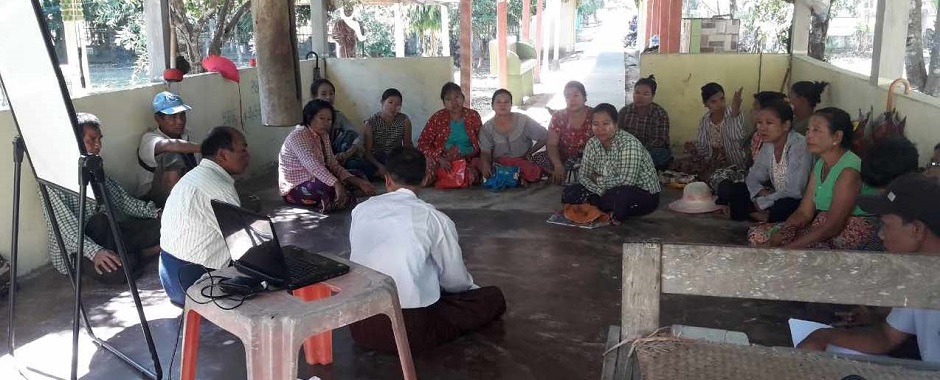In advance of World Zoonoses Day 2020, this year on Monday, 6 July, we are sharing a story from the Myanmar Pig Partnership project which has been taking a One Health approach to exploring the links between disease risk and changing pig production and consumption patterns in Myanmar.
The Myanmar Pig Partnership, an interdisciplinary project involving partners in Myanmar, Vietnam and the UK, including STEPS Centre researchers, is exploring factors around the risk of disease transmission between pigs and from pigs or pig meat to people (zoonoses).
Pig farming is intensifying in Myanmar in response to urbanisation and increasing wealth, and many Myanmar rural households, as well as those on the edges of towns, keep pigs as a valued source of income and food. But diseases transmitted between pigs and from pigs or pig meat to people can damage livelihoods and wellbeing.
Results to date show, for example, that Salmonella bacteria, a major cause of diarrhoea in people, is widespread in retail pig meat in Yangon, and that levels of antibiotic resistance of Salmonella – a major global health challenge – varied, being highest in more intensive production systems and lowest in traditional rural systems.
A key aim of the Myanmar Pig Partnership was also to identify sustainable ways to improve livelihoods for low-income farmers by gathering evidence to support training and learning interventions aimed at better animal health and public health. This led to two pilot initiatives: Farm Management Workshops (FMWs) and Veterinary Advisory Visits.
Observation & experimentation
The FMWs were a discovery-based group adult education approach which used observation, experimentation and sharing by participants to support farmer learning and build skills. They were inspired by the Farmer Field Schools that have already proved successful at introducing more sustainable production methods among farmers in many parts of the world.
The FMWs saw up to 20 small pig farmers from two villages in the Yangon region meeting fortnightly with a facilitator, Myo Min. Farmers helped determined the workshop’s agenda, exploring topics related to nutrition, disease and profitability, and in the workshops Myo Min built on the farmers’ existing understanding, introducing important concepts in as immediate and concrete a manner as possible using photos, videos and diagrams.
A key learning was that disease, whether zoonotic or pig-specific, is often transmitted through the same pathways. So measures that help limit the spread of pathogens that cause better-recognised diseases such as piglet diarrhoea can also limit the spread of less-recognised zoonotic diseases such as salmonella.
Initial feedback from the FMWs indicates that these workshops resulted in behaviour changes at both individual and collective levels. Many of the farmers now change their footwear before entering pig pens, and shower and wash their hands more frequently.
Groups and whole villages are now insisting that traders leave their trucks outside their village rather than bring them on to farms, and they are jointly purchasing vaccines. All are important for good biosecurity.
“Most of our farmers have already made changes to their biosecurity measures, such as banning visitors coming inside the sty, cleaning and disinfecting frequently, showering and changing their footwear more frequently, and using gloves,” said Myo Min.
Social media
The FMW was a pilot initiative and only reached small numbers directly. However, an active Facebook strategy is ensuring that the shared learning is continuing to be spread across the country and further afield.
In addition, a ‘User Guide’ will enable other programmes in Myanmar and elsewhere to adapt the approach.
The UN Food and Agriculture Organization (FAO) is also interested in the FMW initiative as there are few farmer education initiatives in intensifying livestock systems that take such a One Health approach.
The Myanmar Pig Partnership project is funded by the Zoonoses and Emerging Livestock (ZELS) programme. STEPS researchers involved in the project are Dr Hayley MacGregor and Dr Ayako Ebata. It is led by the University of Cambridge and other partners include the Livestock Breeding and Veterinary Department, Myanmar, and Oxford University Clinical Research Unit, Vietnam.
